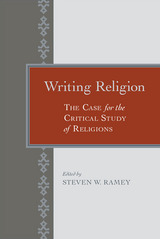
The study of Islam has historically been approached in two different ways: apologetical and polemical. The former focuses on the preservation and propagation of religious teachings, and the latter on the attempt to undermine the tradition. The dialectic between these two approaches continued into the Enlightenment, and the tension between them still exists today. What is new in the modern period, however, is the introduction of a third approach, the academic one, which ostensibly examines the tradition in diverse historical, religious, legal, intellectual, and philosophical contexts. Classical Islamic subjects (e.g., Qur’ān, ḥadīth, fiqh, tafsīr) are now studied using a combination of the apologetical, the polemical, and the academic approaches. Depending upon the historical period and the institutional context, these classical topics have been accepted (apologetical), have had their truth claims undermined (polemical), or have simply been taken for granted (academic).
This volume, comprising chapters by leading experts, deconstructs the ways in which classical Muslim scholarship has structured (and, indeed, continues to structure) the modern study of Islam. It explores how classical subjects have been approached traditionally, theologically, and secularly, in addition to examining some of the tensions inherent in these approaches.

Section one of the volume, “Writing Discourses,” features essays by Jonathan Z. Smith, Bruce Lincoln, and Ann Pellegrini that illustrate how critical study enables the analysis of discourses in society and history. Section two, “Riting Social Formations,” includes pieces by Arjun Appadurai, Judith Plaskow, and Nathan Katz that reference both the power of rites to construct society and the act of riting as a form of disciplining that both prescribes and proscribes. The writings of Tomoko Masuzawa, Amy-Jill Levine, Aaron W. Hughes, and Martin S. Jaffee appear in section three, “Righting the Discipline.” They emphasize the correction of movements within the academic study of religion.
Steven W. Ramey frames the collection with a thoughtful introduction that explores the genesis, development, and diversity of critical analysis in the study of religion. An afterword by Russell McCutcheon reflects on the critical study of religion at the University of Alabama and rounds out this superb collection.
The mission of the Department of Religious Studies is to “avoid every tendency toward confusing the study of religion with the practice of religion.” Instruction about—rather than in—religion is foundational to the department’s larger goal of producing knowledge of the world and its many practices and systems of beliefs. Infused with this spirit, these fascinating essays, which read like good conversations with learned friends, offer significant examples of each scholar’s work. Writing Religion will be of value to graduate students, advanced undergraduates, and scholars interested in the study of religion from a critical perspective.
READERS
Browse our collection.
PUBLISHERS
See BiblioVault's publisher services.
STUDENT SERVICES
Files for college accessibility offices.
UChicago Accessibility Resources
home | accessibility | search | about | contact us
BiblioVault ® 2001 - 2024
The University of Chicago Press









